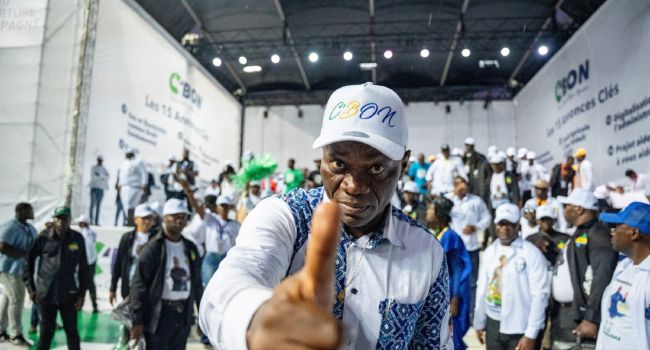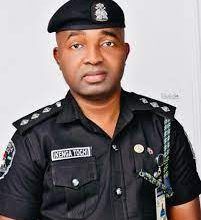Gabon Votes in Pivotal Election as Junta Leader Oligui Eyes Democratic Mandate

Gabonese citizens headed to the polls on Saturday in a closely watched presidential election, one that could see junta leader Brice Oligui Nguema emerge as the country’s first elected president since his military takeover in 2023.
Oligui, the general who orchestrated the August 30, 2023 coup that ended the Bongo family’s 55-year grip on power, is widely seen as the frontrunner among eight candidates vying for the presidency of the oil-rich Central African nation.
Long lines were reported outside polling stations in Libreville, the seaside capital, where many voters said they were casting ballots for the first time.
“I didn’t have confidence in the previous regime,” said Aurele Ossantanga Mouila, 30, a casino croupier who voted after finishing his shift.
A New Era or Old Habits?
Oligui assumed the role of transitional president after deposing President Ali Bongo, promising to restore civilian rule. He formed a transitional government that included civilian figures and committed to drafting a new constitution.
Now, he is campaigning for a full seven-year term in office, hoping to gain electoral legitimacy. During his campaign, he shed his military uniform and positioned himself as a nation-builder, claiming a “historic victory” was within reach.
“The builder is here, the special candidate, the one you called,” he declared during his final rally, set to music and dancing, in Libreville.
However, critics argue Oligui has done little to break with the past, accusing him of representing a mere continuation of the Bongo-era political system. Notably, he once served as an aide-de-camp to Omar Bongo and later as chief of the Republican Guard under Ali Bongo.
His chief rival, Alain-Claude Bilie By Nze, a former prime minister under Bongo, has branded himself as the candidate of “complete rupture” and has challenged Oligui’s claims to reform.
Voting Amid Deep Inequality
About 920,000 registered voters are eligible to participate in the election, which runs from 7:00 a.m. to 6:00 p.m., with results expected by Monday.
Gabon’s socio-economic challenges loom large over the vote. Despite its vast oil and mineral wealth, nearly one in three Gabonese lives below the poverty line, according to the World Bank. The nation also faces rampant youth unemployment, frequent infrastructure failures, and a rising debt burden, which stood at 73.3% of GDP in 2023 and is projected to reach 80% this year.
Official figures show only 2,000 kilometers of the country’s 10,000-kilometer road network is functional, while the sole railway line is plagued by frequent derailments.
Promises of a Transparent Vote
The interior ministry has pledged a free and transparent election, hoping to restore public trust after years of post-election turmoil—including deadly protests in 2009 and 2016, and last year’s military coup.
“Today, all Gabonese are firmly in favour of a democratic game that is played within the rules,” said political analyst Neyer Kenga. “The return to constitutional order is one of the major stakes of this vote.”
But as the nation votes in hope of stability and democratic renewal, observers warn that Gabon’s political future remains uncertain. As Kenga put it: “The people’s response at the ballot box is never known in advance.”





